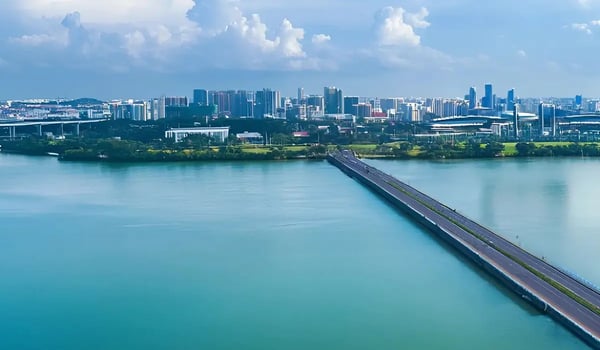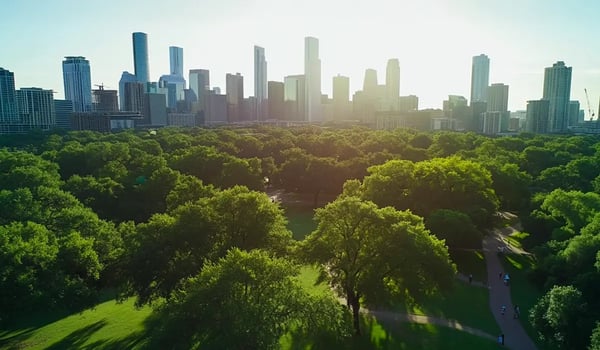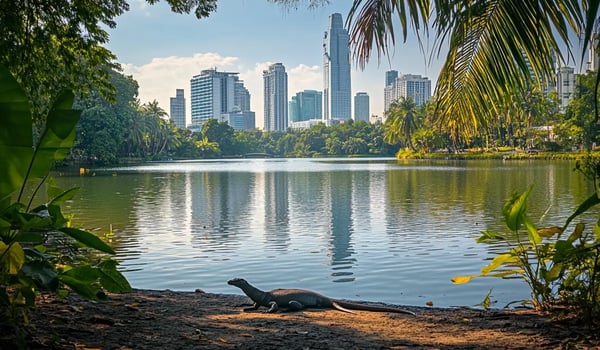Malaysia and Singapore have unveiled the Johor-Singapore Economic Zone (JS-SEZ), a pioneering...
Malaysia's Leap into Sustainable Forestry: Building a Registry for REDD Plus Finance
In a significant move towards reinforcing its commitment to sustainable forest management and climate change mitigation, the Malaysian government, through the Malaysia Forest Fund (MFF), has initiated a pivotal step in operationalizing the REDD Plus Finance Framework (RFF). This ambitious initiative seeks to attract skilled service providers to create a comprehensive registry, a fundamental component for the successful implementation of the RFF. This registry aims to foster transparency and accountability in forest conservation efforts, leveraging both non-carbon benefits and carbon credits to incentivize the preservation of forests.
A Pioneering Step for Forest Conservation
The briefing session, scheduled for March 27, is a crucial gathering for potential registry providers, marking a vital phase in the selection process for those aspiring to contribute to this groundbreaking project. Established under the Ministry of Energy & Natural Resources in 2021, the MFF's call for participation underscores the Malaysian government's proactive approach to engage with the private sector and experts in developing a robust mechanism for forest conservation.
The REDD Plus Finance Framework represents a strategic policy approach, offering positive incentives to both forest owners and the private sector. It introduces two key components: the Forest Conservation Certificate (FCC) and the Forest Carbon Offset (FCO), designed to monetize forest conservation efforts effectively. The upcoming registry will serve as a central hub for all relevant information, including application processes, project validation, approval statuses, and verification details, ensuring the utmost transparency in the implementation of FCC projects.
Crafting the Registry: A Collaborative Endeavor
The Statement of Work (SoW) released for the briefing illuminates the registry's critical role as the cornerstone of the FCC's implementation. It outlines the registry's objectives to encompass a wide range of functionalities, from documenting FCC projects and stakeholders to potentially facilitating the issuance and retirement of carbon credits. This inclusive approach aims to support Malaysia's domestic carbon offset scheme, aligning with global efforts to combat climate change through sustainable forest management.
Prospective service providers are tasked with a comprehensive mandate: to conduct comparative studies of existing systems, outline the project's scope, design the initial architecture, and propose necessary adjustments to the registry. This endeavor calls for a blend of innovation, technological expertise, and a deep understanding of environmental and forestry management principles.
Moving Forward: A Timeline for Action
The timeline set forth by the MFF is a testament to the urgency and importance of this project. With a deadline for proposal submissions by April 3 and a subsequent presentation of proof of concepts scheduled for April 16, the selection process is both rigorous and expedited. This swift timeline underscores the commitment to implementing the RFF effectively and efficiently, with the chosen service provider expected to complete their work within five months after signing the service level agreement.
Conclusion: A Milestone for Malaysia's Environmental Legacy
Malaysia's initiative to establish a registry under the REDD Plus Finance Framework marks a significant milestone in the nation's environmental and forestry management policies. By incentivizing forest conservation and leveraging the potential of carbon credits, Malaysia is setting a precedent for integrating environmental sustainability with economic incentives. This project not only highlights the country's dedication to combating climate change but also offers a model for other nations to follow in harmonizing ecological preservation with development goals. Through collaborative efforts between the government and private sector, Malaysia is poised to enhance its green credentials on the global stage, contributing to a more sustainable and resilient future.






